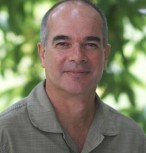DNA reveals the past and future of coral reefs
New DNA techniques are being used to understand how coral reacted to the end of the last ice age in order to better predict how they will cope with current changes to the climate. James Cook Univer

From 2005 to 2022, the main node of the ARC Centre of Excellence for Coral Reef Studies was headquartered at James Cook University in Townsville, Queensland (Australia)








Abstract: There is an increasing appreciation of the need to consider evolutionary responses when predicting the impacts of climate change on marine ecosystems, yet relatively few studies have tackled this critically important question. In part, this lack of research effort stems from a lack of understanding about how evolutionary responses can be tested and included in climate change models. In this talk I will explain why an evolutionary perspective is crucial to understanding climate change impacts in the sea. I will then discuss the different approaches that may be useful for addressing this challenge and examine progress that has been made to date. I will first examine evidence that phenotypic plasticity may assist marine species to persist in a rapidly changing climate. I will then outline the various experimental approaches that can be used to estimate evolutionary potential, focusing on quantitative genetics, experimental evolution, and molecular tools. I will describe the benefits of each approach and how they can be combined to gain a deeper understanding of evolutionary potential. I will use recent examples and summarize the current state-of-knowledge.
Bio: Professor Philip Munday is an ARC Future Fellow in the ARC Centre of Excellence for Coral Reef Studies at James Cook University. He has broad interests in the biology and ecology of marine fishes. His research program focuses on predicting the impacts of climate change and ocean acidification on coral reef fishes, and testing their capacity to adapt to a rapidly changing environment. His research has been instrumental in showing that multi-generational history is critical for predicting the consequences of climate change for marine species.
New DNA techniques are being used to understand how coral reacted to the end of the last ice age in order to better predict how they will cope with current changes to the climate. James Cook Univer
A new study on the effects of climate change in five tropical countries has found fisheries are in more trouble than agriculture, and poor people are in the most danger. Distinguished Profess
James Cook University researchers have found brightly coloured fish are becoming increasingly rare as coral declines, with the phenomenon likely to get worse in the future. Christopher Hemingson, a
Researchers working with stakeholders in the Great Barrier Reef region have come up with ideas on how groups responsible for looking after the reef can operate more effectively when the next bleaching
Abstract: As marine species adapt to climate change, their heat tolerance will likely be under strong selection. Individual variation in heat tolerance and its heritability underpin the potential fo
Abstract: The Reef Ecology Lab in KAUST’s Red Sea Research Center explores many aspects of movement ecology of marine organisms, ranging from adult migrations to intergenerational larval dispersal
Abstract: Macroalgal meadows are a prominent, yet often maligned component of the tropical seascape. Our work at Ningaloo reef in WA demonstrate that canopy forming macroalgae provide habitat for ad
Abstract: Sharks are generally perceived as strong and fearsome animals. With fossils dating back at least 420 million years, sharks are not only majestic top predators but they also outlived dinosa
Abstract: Connectivity plays a vital role in many ecosystems through its effects on fundamental ecological and evolutionary processes. Its consequences for populations and metapopulations have been
Abstract: Evolution of many eukaryotic organisms is affected by interactions with microbes. Microbial symbioses can ultimately reflect host’s diet, habitat range, and even body shape. However, how
Abstract: The past few years have seen unprecedented coral bleaching and mortality on the Great Barrier Reef (GBR) but the consequences of this on biodiversity are not yet known. This talk will expl